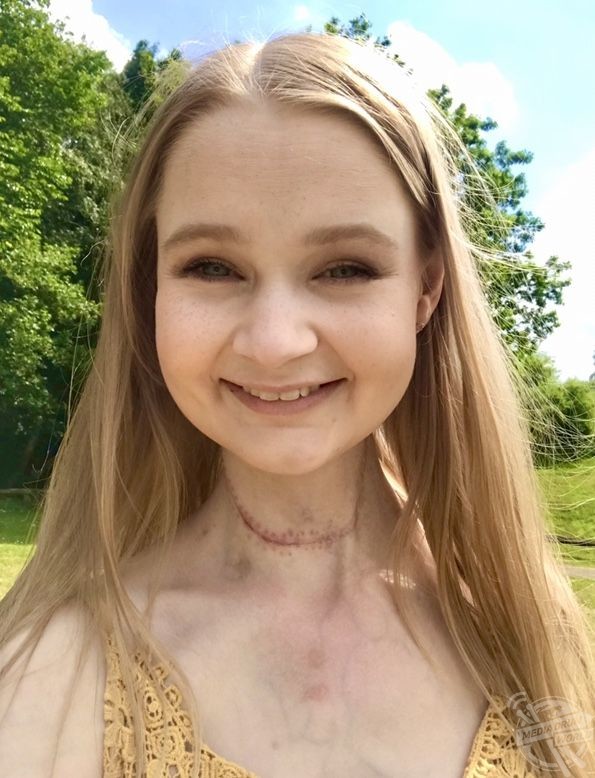By Rebecca Drew
THIS BRAVE British woman has been left with a TEN-INCH scar across her neck and only two thirds of a tongue after a lump she thought was caused by her braces turned out to be cancer – and now she is releasing pictures as a warning to others.
Kimberley Hattersley-Barton (22) from Wakefield, UK, was diagnosed with the rare childhood soft tissue cancer, rhabdomyosarcoma, when she was just 13 months old. She fought this and was given the all clear at two-and-a-half-years-old, after several rounds of chemotherapy and radiotherapy.
Kimberley’s childhood cancer battle left her with several long-term chronic health problems including kidney failure and cardiomyopathy, but her optimistic nature meant that she has never dwelled on this.
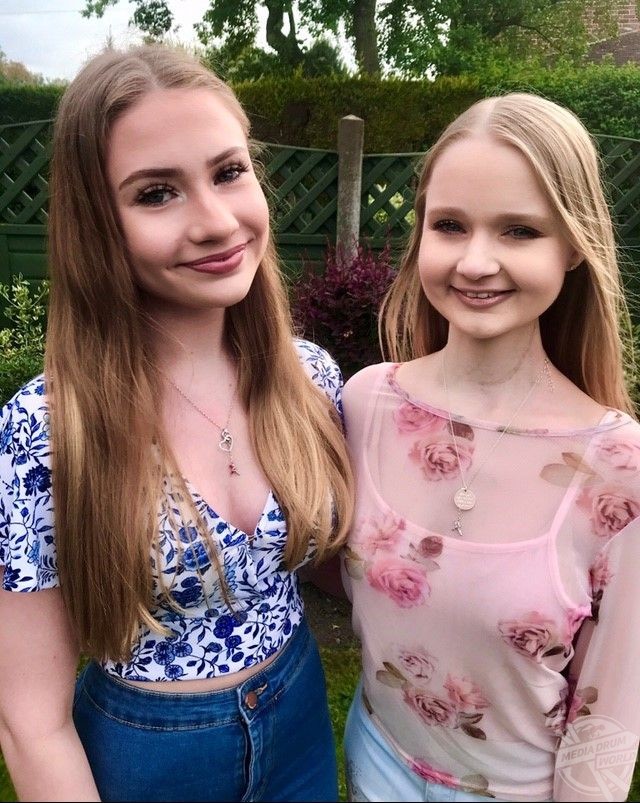
In December 2015, Kimberley first noticed a bump on her tongue whilst she was brushing her teeth which she initially ignored as she already had a naturally geographical tongue and was wearing braces at the time which can cause mouth irritation.
A few days passed and she noticed that her tongue wasn’t symmetrical and the bump was now in fact a pronounced lump. Kimberley was referred to the head and neck clinic and was told the news that she had squamous cell carcinoma on her tongue which had spread to her neck lymph nodes at the age of 18.
Taken aback by her diagnosis, Kimberley had to undergo surgery on March 1, 2016, to remove the affected area of her tongue which included a gruelling neck dissection, where all of her lymph nodes on her left side were removed, and followed up with 33 rounds of radiotherapy over six-and-a-half-weeks and she completed treatment on May 20, 2016.
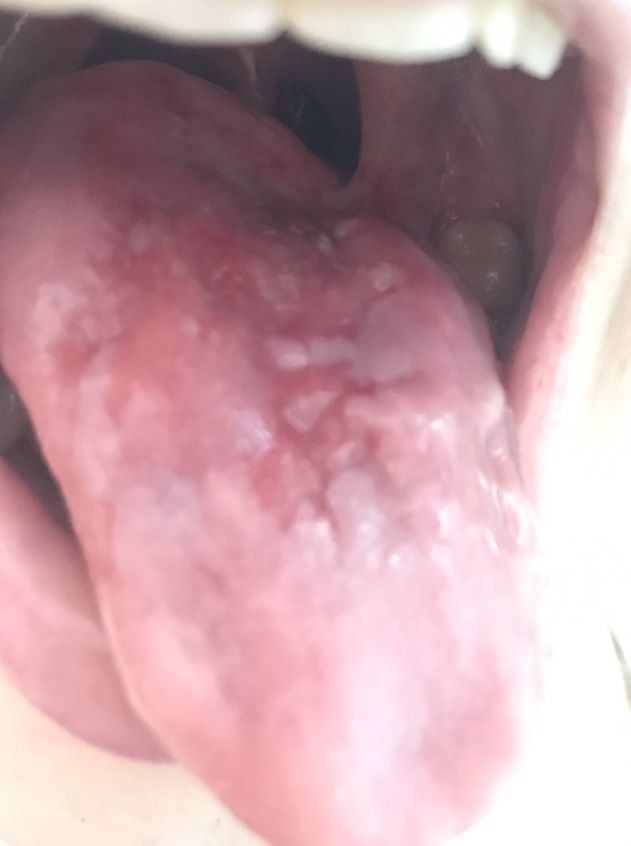
For almost four years Kimberley’s check-ups had been clear but in April 2020, at the height of the coronavirus pandemic, she received the devastating news that her tongue cancer had returned after she’d noticed her tongue was so sore she was struggling to eat soft foods.
Luckily Kimberley’s second diagnosis was caught at the earliest stage and after surgery to remove the affected section of her tongue and lymph nodes on the right side of her neck as a precaution on May 5, 2020, she has thankfully not needed any further treatment.
Head and neck cancers are more common in people over the age of 50 or in those who have been exposed to risk factors such as alcohol and tobacco which makes Kimberley’s story an anomaly so she’s keen to spread awareness for her type of cancer and has set up her Instagram page, @kimberleys_lifewiththeribbon.
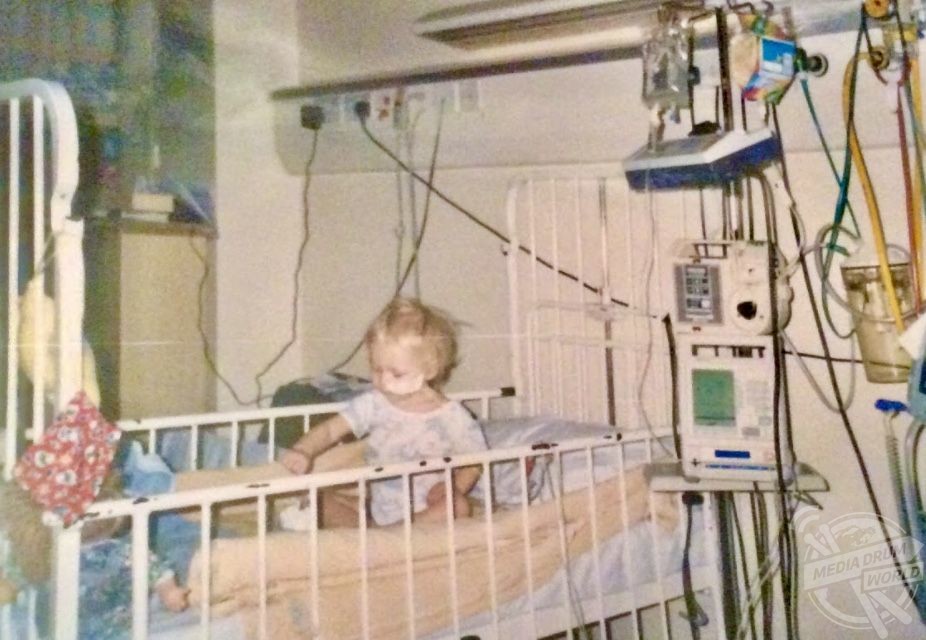
“Prior to the first tongue cancer diagnosis I had braces on my teeth, I spotted the tumour when cleaning my braces and thought nothing of it as I have a geographical tongue anyway,” said Kimberley.
“It was a couple of days later when I realised that area wasn’t symmetrical to the other side of my tongue and saw it was a lump. I didn’t notice any symptoms other than my ear was throbbing a lot, it was at my first appointment I was told that was because the cancer had spread and was putting pressure on my ear.
“I was in disbelief of what I heard, I was upset and confused at what had just been said as I wasn’t aware that it [the cancer] was in my neck also. I got more upset when the doctor got me to feel the area under my ear and I felt a solid lump in my neck.
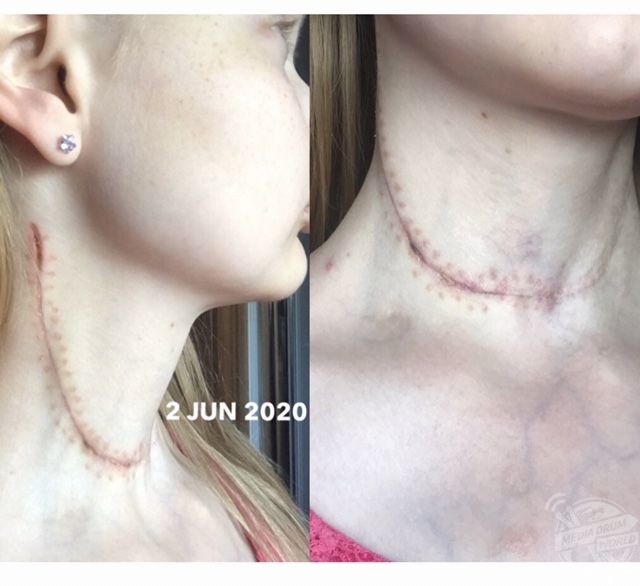
“I remember crying and saying ‘I don’t want it to come back’, but it was too late and it was heart-breaking for my whole family.
“I had the back third of my tongue removed and reconstructed by joining the gum across to reconnect to my tongue, my speech was slightly affected by this so I worked with speech therapy to get full range of my speech back.
“During surgery this included a neck dissection to remove the spread tumour and all of my lymph nodes on the left half of my neck. The tumour was aggressive so it was followed up by radiotherapy.
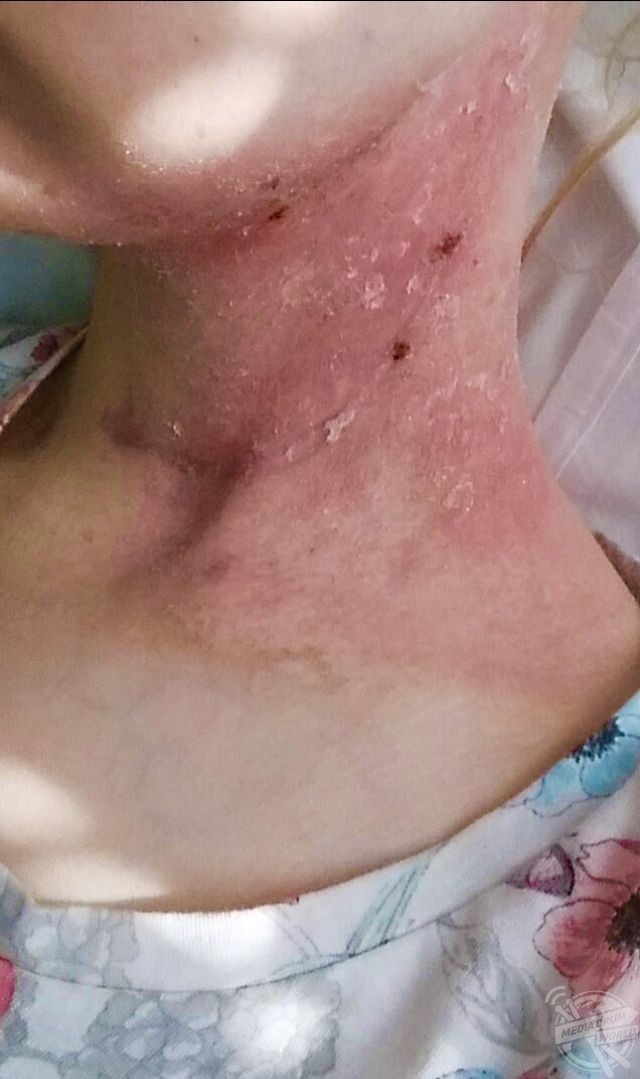
“I was re-diagnosed in April 2020. My tongue had visually changed due to the radiotherapy scarring but had got sorer and made my diet increasingly limited over time. By March 2020 I was due my clinic review, but one particular area was so sore I couldn’t even eat and every meal by this point had become painful because of the severe soreness.
“The second diagnosis wasn’t altogether a shock, I was already aware my tongue cells were changing because of how sore it was.
“During the wait between the same biopsy/scans process and results I tried to stay optimistic, which was a challenge as the ‘vulnerable persons self-isolation’ had been introduced to keep myself safe from COVID-19.
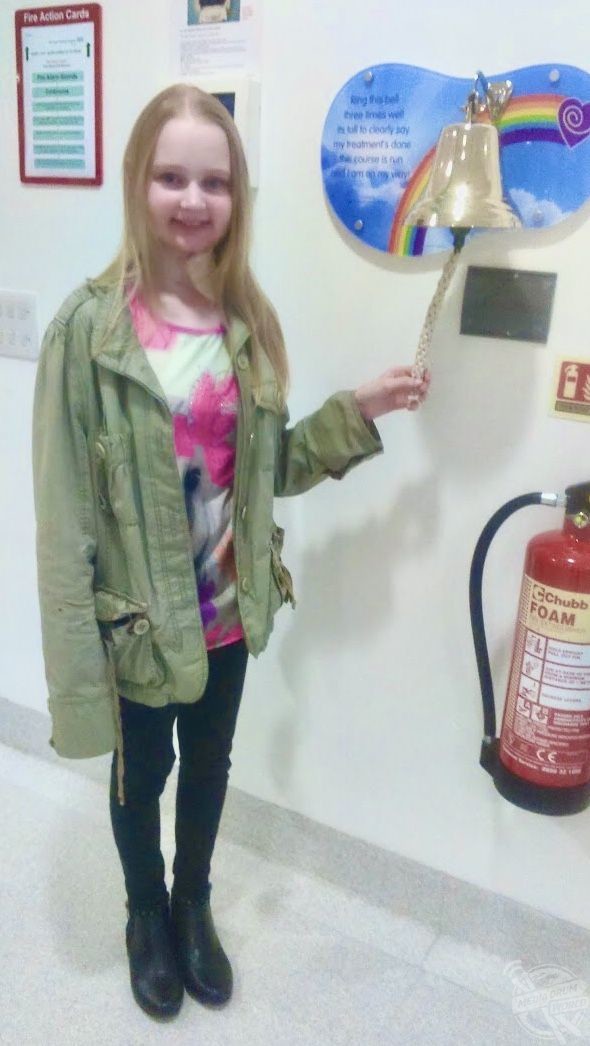
“With all of this happening I was more distressed as by this point I was also starting to struggle eating because with the soreness where the mutation was. Once confirmed I was naturally upset but I then had to make the decision to go ahead with the operation which would happen during the peak of COVID-19.
“I’m generally a very optimistic positive person and try to handle my health the best I can through the challenging times, but even with that mindset there’s only so much a person can take of these life experiences.
“Since the first tongue tumour I’ve had upsetting flashbacks and many memories that still come back.”
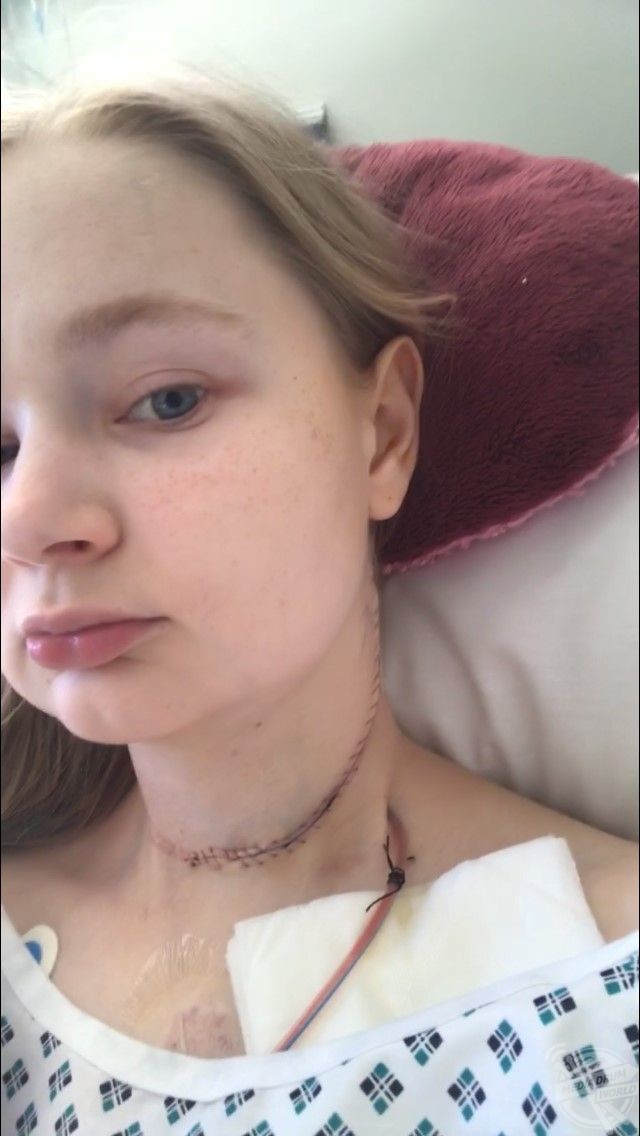
The most common type of head and neck cancer is squamous cell carcinoma and about nine out of 10 head and neck cancers start in squamous cells.
Kimberley isn’t sure why she has been diagnosed with tongue cancer on two separate occasions or why she developed it so young. After genetic testing, her doctors concluded that her genetics are very rare and prone to mutation.
After surgeries Kimberley has been left with ten inch scar from left to right which is formed of two separate six inch scars overlapping.
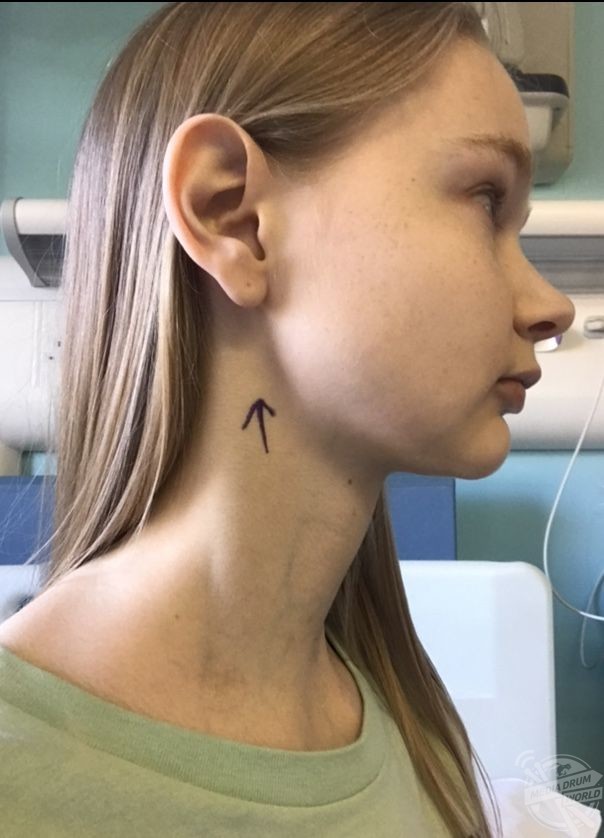
“I’ve always wanted to share my story to inspire others in any way possible,” she said.
“But now after another diagnosis I want to use the small public platform I created to hopefully bring more awareness and share information/footage/pictures that can help people understand what cancer journeys are like – they’re all individual but each diagnosis follows a similar process and I want to share things others wouldn’t know or understand properly unless experienced in some way personally.
“I want to inspire others and say whatever challenge you come across, things will always move on so you have to make the most of every moment you can and enjoy the best out of things even in difficult times or with lifestyle adaptions.”
Finally Kimberley shared her words of advice to others.
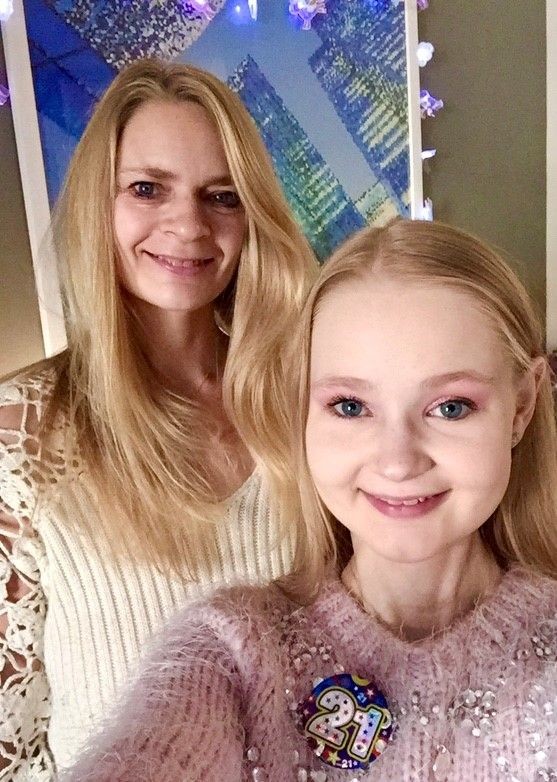
“I’d want to tell someone else to take one day at a time and allow yourself to accept the mix of emotions,” said Kimberley.
“I think it’s also helpful to have a compassionate support network – whether that be just immediate family or a larger circle of friends, it’s heart-warming and important to have that reminder of support that can be there to enlighten you even when your physically or emotionally feeling at your worse.
“I highly encourage asking any questions to the health professionals who are supporting you, that definitely helped me the most whilst preparing for the second operation even though I somewhat knew what to expect – it puts your mind more at ease and helps you absorb and process the information of what’s happening.
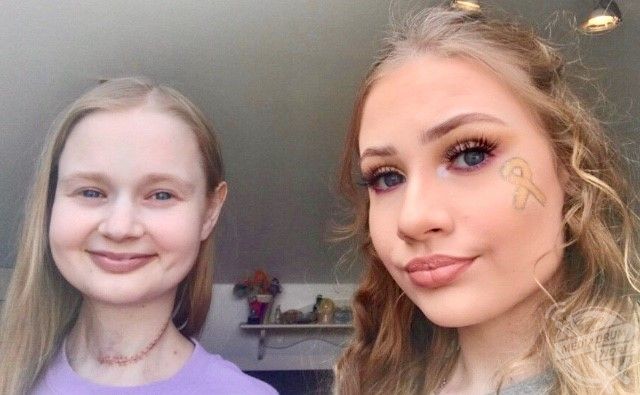
“One of my radiotherapy nurses told me, ‘It’s long days and weeks but short months’, I think that’s such an important perspective to have on life.”
For more information see m.facebook.com/kimberleyslifewiththeribbon

